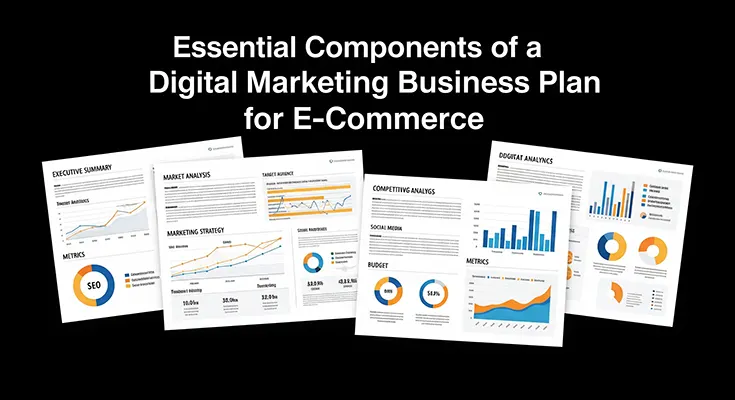In the fast-paced world of e-commerce, having a solid digital marketing business plan is crucial for success. Whether you are launching a new e-commerce venture or looking to enhance your current online presence, a well-developed digital marketing strategy can help you attract, engage, and convert customers effectively. In this article, we will explore the essential components of a digital marketing business plan tailored specifically for e-commerce businesses.
1. Market Research and Analysis
Conduct thorough market research to understand your target audience, competitors, industry trends, and consumer behaviors. Identify your e-commerce niche, unique selling proposition (USP), and market positioning to tailor your digital marketing strategies for maximum impact.
2. E-Commerce Platform Selection
Choose the right e-commerce platform that aligns with your business goals, budget, and requirements. Consider factors such as usability, scalability, mobile-friendliness, and integration capabilities to create a seamless shopping experience for your customers.
3. Website Optimization
Optimize your e-commerce website for search engines (SEO) and user experience (UX) to increase visibility, traffic, and conversions. Ensure that your website is mobile-responsive, fast-loading, secure, and easy to navigate to provide a positive shopping experience for customers.
4. Content Strategy
Develop a content strategy that includes product descriptions, blog posts, videos, infographics, and social media content to engage and educate your target audience. Create compelling and optimized content that showcases your products, tells your brand story, and adds value to your customers.
5. Social Media Marketing
Utilize social media platforms such as Facebook, Instagram, Twitter, and Pinterest to promote your e-commerce business, engage with customers, and drive traffic to your website. Develop a social media marketing strategy that includes content planning, community management, influencer partnerships, and paid advertising to reach a wider audience.
6. Email Marketing Campaigns
Implement email marketing campaigns to nurture leads, promote products, and drive sales for your e-commerce business. Create personalized and targeted email campaigns based on customer segmentation, behavior, and purchase history to build customer loyalty and increase repeat purchases.
7. Paid Advertising
Utilize paid advertising channels such as Google Ads, Facebook Ads, and Instagram Ads to reach potential customers, generate leads, and increase sales for your e-commerce business. Develop targeted ad campaigns, optimize ad creatives, and track key performance metrics to measure the effectiveness of your paid marketing efforts.
8. Conversion Rate Optimization (CRO)
Implement conversion rate optimization strategies to optimize your website for higher conversions and sales. Conduct A/B testing, analyze user behavior, improve site speed, and optimize checkout processes to reduce cart abandonment rates and maximize revenue from your e-commerce store.
9. Customer Relationship Management (CRM)
Implement a CRM system to manage customer data, track interactions, and personalize communication with your e-commerce customers. Develop personalized marketing campaigns, offer loyalty programs, and provide excellent customer service to enhance customer satisfaction and retention.
10. Performance Tracking and Reporting
Monitor key performance indicators (KPIs) such as website traffic, conversion rates, click-through rates (CTR), return on ad spend (ROAS), and customer lifetime value (CLV) to measure the success of your digital marketing initiatives. Use analytics tools and reporting dashboards to track performance, identify trends, and make data-driven decisions to optimize your e-commerce marketing strategies.
By including these essential components in your digital marketing business plan for e-commerce, you can create a comprehensive roadmap to drive traffic, conversions, and revenue for your online store. Stay agile, adapt to changing market dynamics, and continuously optimize your digital marketing efforts to stay competitive and achieve sustainable growth in the competitive e-commerce landscape.





